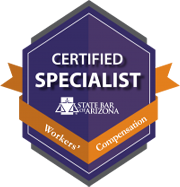How to Stay Healthy When Under Stress and if Your Job Requires You to Sit for Hours

STRESS IS A PART OF LIFE THAT EVERYONE EXPERIENCES
Short-term stress can happen anywhere at any time. You are driving on the highway in the middle lane, and someone comes speeding up on your left side and passes you. Suddenly, that car does a nearly 45-degree angle turn to the right to get off the highway. It startles you as you automatically swerve to avoid hitting that car’s back-end corner.
It is sudden and shocking, your heart is racing as you finally understand you are still alive and without injury (hopefully). Meanwhile, that guilty driver exits the freeway and continues merrily on their journey. Made you angry, right?

But you survived and can still move forward with your life. This type of stress is common in all living things as it is the fight-or-flight response that keeps you alive. It wakes you up better than coffee and you will likely relive the moment several times during the day.
Within two to three minutes, you have experienced shock, fear for your life, fear for the life of your family member in the front passenger seat, a sigh of relief when it is over, and then anger because a careless driver put your life (and your passenger’s life) in danger. But you must continue on as you are in the middle of the highway with cars behind you.
In some cases, you see an opening to get off the highway behind that driver and this is when your anger can cause road rage. Take deep breaths to calm yourself down and avoid a direct confrontation. Aside from getting into a brawl, you also do not know who that person is and what kind of life-threatening danger you might put yourself in if you confront them.
Instead, just get the license plate numbers and pull over to the side of the road and call the police. Give them the information and, if possible, they will chase the driver down. You should be willing to give a statement if the police catch the driver. You never know when you may save someone else’s life by helping to catch this driver.
Long-term stress is different from short-term stress as it can happen in a number of ways. A dysfunctional family member causes trouble by telling lies about you to other family members. Pretty soon you, your spouse, and your children are no longer invited to family holiday dinners.
Such dysfunctional family members can also cause trouble at your workplace. Hopefully, you are informed of what is happening so you can take measures to deal with the problem before your job is jeopardized. It is a sad situation to be in and the stress goes on and on as you try to deal with the resulting issues. The important thing you should do is fight back in the sense of engaging with family members about what is going on. Confront the one telling lies. If you can, secretly record your confrontation so you can understand why they are behaving this way.
LONG-TERM STRESS IN THE WORKPLACE
A similar situation can also occur at work when troublesome employees, for whatever reason, have chosen to target you with nasty rumors. These rumors, as soon as you find out about them, should be addressed first with the one who started them. If there is no satisfaction, get a manager involved. Go up the chain of command. It helps if you have evidence, such as nasty phone calls made to you at home, things that happen at work such as tools that go missing and you know where they should be, but they are not there.
Long-term stress can make you ill. Stress can result in faster heartbeats, and more acid in your stomach (acid reflux) because of ongoing tension, along with diarrhea, constipation, and heartburn, and cause panic attacks which are very unpleasant to deal with, especially at work.
Stress can cause inflammation in your circulation system, resulting in swelling and pain in parts of your body. Basically, long-term stress can make you ill. Would workers’ compensation benefits be awarded if the cause of your illness comes from a related workplace stressful situation?
SITTING LONG HOURS WHILE YOU WORK
If your job requires you to sit for eight hours a day, set up an exercise routine to do at lunchtime. Releasing “happiness” endorphins during exercising means you will have a better outlook, regardless of what is going on around you. Listen to calming music while you work. Sitting for hours is not healthy for your body and your circulatory system. Get exercise whenever you can.
Even if you remain at your desk, exercise your legs, and your arms, do deep-breathing routines and drink as much water as you need. When you get home, if you can, take a walk. Go with a family member to a nearby well-lit park. Or just walk your street several times until you feel sufficiently rejuvenated.
DOCUMENT EVERYTHING RELATED TO YOUR CASE
No one should have to work in a toxic long-term stressful situation, whether it is caused by the employer or by fellow workers. The key point, however, is documentation. You must show that you noted down whenever something was said to you or was done to you (keep a small notebook handy), record phone calls that are threatening to you, your job, and your family, and if you get along with your manager, tell your manager what is happening as it happens.
Fighting back is one way to help boost your morale. When you feel you have no way to fight back and you must suffer what is done to you, then you are in a dangerous situation as regards your health over time. Find calming techniques to help relax your body and mind. Write about what is happening to you, and what you feel, and examine how you can overcome the situation.

Build a support group around yourself made up of close trusted family members, and friends, and consider legal options by speaking with attorneys who could help you. Evidence is important for the success of any legal case. Your attorneys can advise you on how to collect evidence the right way that will stand up in court.
CALL US IF YOU NEED HELP WITH A CLAIM OR ADVICE
Arizona Injury Law Group offers experienced and Certified workers’ compensation lawyers and legal services for injured workers. Call for your free consultation! 602-346-9009.
Get Help Today
Call Immediately For A Free, No Obligation Consultation And Let Us Help You Put Your Life Back On Track. Let Us Help You
Regain Normalcy And Stability Again. We Want To Help You Get The Benefits You Need And Deserve!


